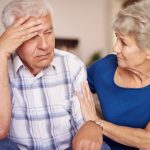 Adults who eat fermented foods have a decrease in social anxiety. The study came out of the University of Maryland School of Social Work, where researchers investigated a possible association between social anxiety and fermented foods, which are known to contain probiotics. They found that young adults who consume more fermented foods have fewer social anxiety symptoms and the effects are highest among those with a genetic risk for social anxiety.
Adults who eat fermented foods have a decrease in social anxiety. The study came out of the University of Maryland School of Social Work, where researchers investigated a possible association between social anxiety and fermented foods, which are known to contain probiotics. They found that young adults who consume more fermented foods have fewer social anxiety symptoms and the effects are highest among those with a genetic risk for social anxiety.
Co-research lead, Matthew Hilimire, Ph.D., said, “It is likely that the probiotics in the fermented foods are favorably changing the environment in the gut, and changes in the gut in turn influence social anxiety. I think that it is absolutely fascinating that the microorganisms in your gut can influence your mind.”
Advertisement
Nearly 700 students answered a questionnaire developed by Hilimire and co-researcher Catherine Forestell, Ph.D. The questionnaires asked students about their fermented food intake within the last 30 days, along with their exercise frequency and average consumption of fruits and vegetables.
 Hilimire added, “The main finding was that individuals who had consumed more fermented foods had reduced social anxiety but that was qualified by an interaction by neuroticism. What that means is that that relationship was strongest amongst people that were high in neuroticism.” Along with fermented food consumption, exercise was also shown to help reduce social anxiety.
Hilimire added, “The main finding was that individuals who had consumed more fermented foods had reduced social anxiety but that was qualified by an interaction by neuroticism. What that means is that that relationship was strongest amongst people that were high in neuroticism.” Along with fermented food consumption, exercise was also shown to help reduce social anxiety.
There is growing evidence to support the role of probiotics and a healthy gut with a healthy mind, and future studies are already in the works to test these hypotheses further.
Social anxiety disorder causes
 Social anxiety disorder is a condition where a person feels extreme fear in certain situations, such as being out in public areas or in unfamiliar situations. Anxiety can begin even just thinking about an upcoming event, way before anything actually occurs. This anxiety and fear may be so strong that a person may choose not to attend unfamiliar situations or even leave their house.
Social anxiety disorder is a condition where a person feels extreme fear in certain situations, such as being out in public areas or in unfamiliar situations. Anxiety can begin even just thinking about an upcoming event, way before anything actually occurs. This anxiety and fear may be so strong that a person may choose not to attend unfamiliar situations or even leave their house.
Although there is no exact cause of social anxiety disorder, there are three main factors that can lend themselves to their onset: biological, psychological or environmental.
Biological factors of social anxiety disorders may stem from abnormal functioning in the brain circuits that regulate emotions. It has also been seen that if a person with a close relative has a social anxiety disorder, their risk increases.
Psychological factors may stem from embarrassment or humiliating situations or even being bullied in the past.
Lastly, environmental factors stem from observing social situations and developing a fear based on what has happened to others. Additionally, sheltered children or those who are overprotected tend to develop social anxiety disorders more often.
Social anxiety disorder symptoms
Symptoms of social anxiety disorder can be physical, emotional and even behavioral. Symptoms of social anxiety disorder include:
 Excessive self-consciousness
Excessive self-consciousness- Intense worry that can last for days
- Extreme fear of being judged
- Fear you will act in a way that will be embarrassing
- Fear that others will notice your nervousness
- Red, blushing face
- Shortness of breath
- Upset stomach, nausea
- Trembling or shaking
- Racing heart, tightness in chest
- Sweating
- Dizziness, fainting
- Avoiding social situations
- Staying quiet or hiding in social areas
- Constant need to have someone with you – won’t go out alone
- Drinking prior to social situations in order to calm nerves
Social anxiety disorder treatment
There are a few different ways to overcome and treat social anxiety; here are some tips you can try:

- Turn negative thoughts into positive ones.
- Learn to control your breath – you may want to try yoga or a guided meditation.
- Face your fears – continuing to avoid situations will only worsen your fears.
- Build better relationships – volunteer, work on communication skills or take a social class.
- Change your lifestyle – avoid or limit caffeine, drink in moderation, quit smoking and get proper sleep.
Advertisement
If you are still struggling with these tips to cope with your social anxiety, you may require professional therapy. Cognitive behavioral therapy and group therapy can be effective in treating social anxiety. You can work with a professional to help overcome your anxiety and work through any previous issues that may have led to your anxiety disorder.
Lastly, if through therapy you are still not managing your social anxiety disorder, your doctor may prescribe medications, such as beta blockers, antidepressants and benzodiazepines, which help reduce anxiety.
In order to determine which mode of treatment is best for your condition, you should speak with your doctor.
